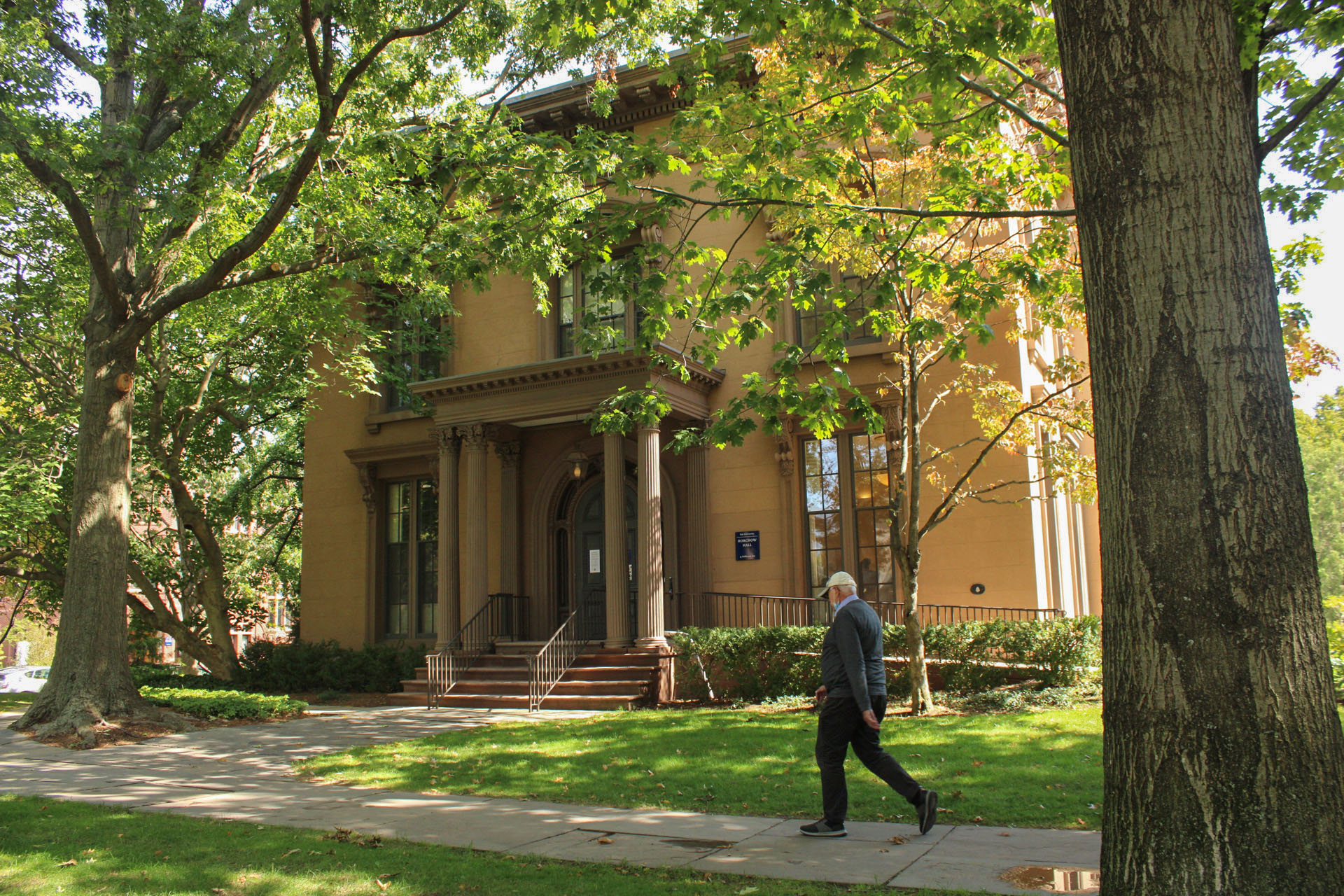ISS research explores shifting power trends among U.S. and China
The ISS, now housed under the Jackson Institute, is conducting research on the evolving relations between America, China and Eurasia.

Yasmine Halmane Photo
The International Security Studies, or ISS, research cohort at Yale, which was incorporated into the Jackson Institute for Global International Affairs earlier this month, has recently overseen a number of programs and projects — with one seeking to explore the evolving relations between the United States, China and Eurasia.
Elihu professor of history and global affairs Odd Arne Westad, who also serves as the executive director of ISS, will be responsible for spearheading this specific effort. Though the project is still in its budding stages, several professors and practitioners from the Jackson Institute have already expressed interest in being collaborators. Among them are current senior fellows Stephen Samuel Roach and David Rank, as well as visiting fellow Fiona Hill.
“We are currently in a situation in which the world is moving away from the U.S. being … the most powerful nation,” Westad said. “We want to look at … issues that are connected to the rise of China, first and foremost, and how other areas of the world deal with that.”
Among the major research topics that the project will address are the security and trading aspects of the U.S. and China relationship, the sociopolitical challenges that Taiwan is currently confronting, a Southeast Asia characterized by gradual power shifts and the evolving relationship between Europe and China. According to Westad, these topics are not often recorded in modern literature.
Westad added that these issues are especially relevant today, as the pandemic has impacted the agenda and international endeavors of the United States, China and Eurasia.
Yale Law School visiting lecturer Susan Thorton, who led a 28-year diplomatic career in the U.S. State Department specializing in Eurasian and Asian foreign affairs, agreed that there is a need to study the countries’ changing power dynamics. She said this will help better understand transnational issues like inequality and extremism, and also stimulate conversations in trying to find practical solutions to navigate these issues.
“Quite frankly, I’m not a fan of making great power competition the lone star of U.S. foreign policy,” Thorton said. “I think it will possibly result in a lot of misallocated resources. U.S. long-term interests in foreign policy should not change every four years when there’s change in administration.”
According to Westad, the project’s focus will extend beyond the U.S., China and Eurasia to examine how the affairs and policy changes will impact smaller countries and ordinary people.
For Westad, the study of international relations also emphasizes the intersectionality of both humanities and scientific fields. He said he plans to coordinate with faculty members from other Yale departments to achieve an interdisciplinary approach to the project.
Outside of this specific project, the Jackson Institute strives to make research more than a straightforward science by giving students the flexibility to pursue coursework, extracurriculars, career resources and mentorship from different graduate schools at Yale, according to second-year master’s student at the Jackson Institute Brianda Romero Castelán ’22.
“I think one overarching mission of the [Institute] is to bridge theory practice to not only educate future policymakers but really give them the practical tools that they can take beyond the classroom and into the workspace,” said Elen Aghekyan ’22, another second-year master’s student at the Jackson Institute.
Westad agreed with this mission and expressed his hopes to open up the international relations project to students, as well as to outside researchers. He explained that outside researchers will likely work on smaller branches of the bigger overarching project that they are interested in.
He also added that the ISS hopes to engage with research institutes in China and Europe that have similar research objectives. He hopes that in the future the project will expand to include nations not usually represented in these conversations, such as some African countries.
The ISS is currently developing research projects on naval studies and cybersecurity, as well as on emerging technologies.







